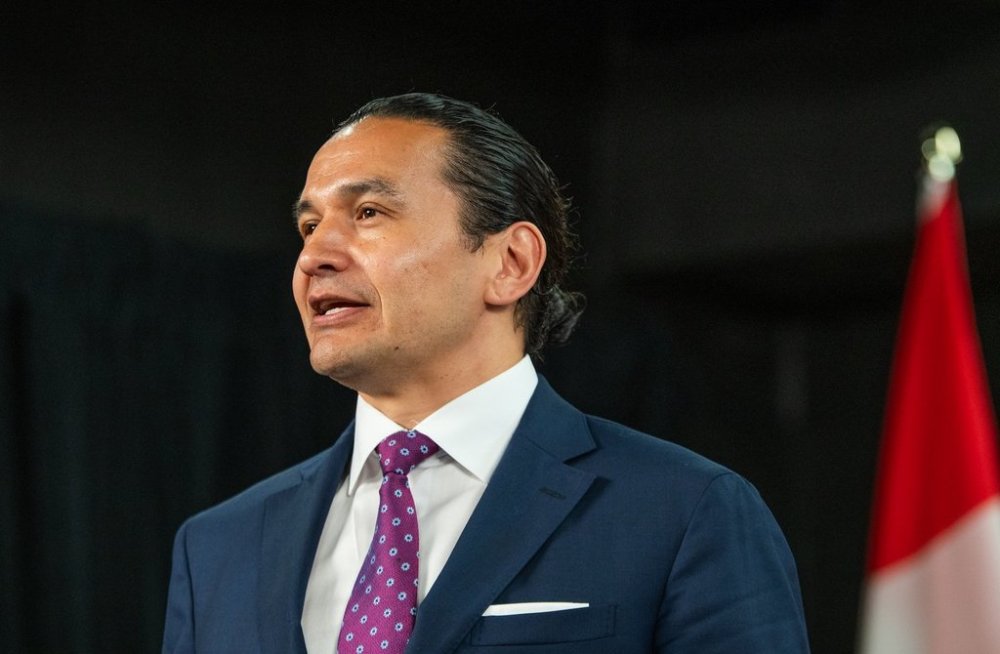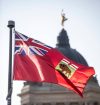Deficit blows up as NDP spends, fails to shrink corpulent health bureaucracy
Advertisement
Read this article for free:
or
Already have an account? Log in here »
To continue reading, please subscribe:
Monthly Digital Subscription
$0 for the first 4 weeks*
- Enjoy unlimited reading on winnipegfreepress.com
- Read the E-Edition, our digital replica newspaper
- Access News Break, our award-winning app
- Play interactive puzzles
*No charge for 4 weeks then price increases to the regular rate of $19.95 plus GST every four weeks. Offer available to new and qualified returning subscribers only. Cancel any time.
Monthly Digital Subscription
$4.99/week*
- Enjoy unlimited reading on winnipegfreepress.com
- Read the E-Edition, our digital replica newspaper
- Access News Break, our award-winning app
- Play interactive puzzles
*Billed as $19.95 plus GST every four weeks. Cancel any time.
To continue reading, please subscribe:
Add Free Press access to your Brandon Sun subscription for only an additional
$1 for the first 4 weeks*
*Your next subscription payment will increase by $1.00 and you will be charged $16.99 plus GST for four weeks. After four weeks, your payment will increase to $23.99 plus GST every four weeks.
Read unlimited articles for free today:
or
Already have an account? Log in here »
Premier Wab Kinew’s government is running out of fiscal runway.
A recent report from Moody’s delivered a wake-up call last week about Manitoba’s deteriorating finances. The bond rating agency predicted the province’s deficit will be far higher than what the government projected in its spring budget.
The growing deficits will likely continue next year too, according to the report.

The province forecast a $327-million deficit for the 2026-2027 fiscal year. Moody’s says it will be more like $900 million.
And while some of that has to do with tariffs imposed by the United States and China and the effect that may have on Manitoba’s economy, a lot of it has to do with government’s heavy spending.
Moody’s also suggested Manitoba still has room to raise taxes if needed. It was a polite way of saying the province could hike the PST, add new levies or claw more from businesses and households without jeopardizing its tax competitiveness with other provinces.
That may be true, technically. But it would be the wrong solution politically and economically.
The Kinew government has no business even whispering the words “tax increase” until it proves it can manage the billions it already collects. And so far, after nearly two years in power, it hasn’t done a great job of it.
The real problem in Manitoba isn’t revenue, it’s spending. Government expenditures continue to balloon, with no sign of restraint. Overall spending in this year’s budget is up 7.1 per cent compared to the previous year, more than three times the rate of inflation. That’s not sustainable.
It’s driving up provincial debt and it’s jeopardizing the health of Manitoba’s finances. In the last two years alone, the province’s summary net debt jumped to $35.5 billion from $32.3 billion — a 10 per cent increase.
The NDP already raised taxes this year by de-indexing personal income taxes and by revamping the province’s education property tax rebate. Before Kinew even thinks about tapping into Manitobans’ wallets further, he has to show he’s serious about finding savings within government.
That means reducing costs in bloated bureaucracies — starting with health care.
During its years in opposition, the NDP repeatedly blasted the former Progressive Conservative government for creating multiple layers of health-care bureaucracy.
It railed against Shared Health, the Winnipeg Regional Health Authority and the patchwork of other regional bodies that oversee services. The party promised to cut duplication, streamline administration and redirect dollars to front-line care.
Instead of trimming fat, the NDP has allowed the status quo to continue, if not worsen.
But after nearly two years in government, the NDP has done little, if anything, to reduce administrative costs. The bureaucratic maze is still there. Shared Health still has its own executive ranks and communications staff. The WRHA still exists as a separate entity. Other regional health authorities remain in place. And Manitoba Health, a government department, still exists.
Instead of trimming fat, the NDP has allowed the status quo to continue, if not worsen.
Meanwhile, emergency rooms remain overcrowded, surgical wait lists are still growing and rural hospitals are struggling to keep services open. The same bureaucracies that were supposed to be reined in continue to absorb millions of dollars that could be going to front-line nurses, paramedics and doctors.
If Kinew can’t even deliver on his signature pledge to cut health-care bureaucracy, how can Manitobans trust him to show discipline across the rest of government?
The NDP’s fiscal credibility is already in question. Budget projections made only months ago now appear wildly unrealistic.
For now, Manitoba’s credit rating is stable. But that won’t last forever if the red ink keeps flowing.
Once the bond markets lose patience, Manitobans will pay the price through higher interest costs on the province’s growing debt. Every extra dollar going to debt servicing is a dollar not spent on health care, education or infrastructure.
The right path is not squeezing more money out of taxpayers. It’s managing the money government already takes in more wisely.
If Kinew’s government doesn’t change course soon, it risks becoming defined by the same financial mismanagement it once condemned.
That means getting serious about reducing overlap in health administration. It means reviewing every government department for efficiencies and cutting discretionary spending.
The premier campaigned as a pragmatic leader who would govern differently than past politicians. He promised to restore trust, to be honest with Manitobans and to focus resources where they make the biggest impact. That’s what people voted for.
Now is the moment to prove he meant it. It’s not enough to talk about affordability while deficits spiral out of control. It’s not enough to lament the bureaucratic mess in health care without cutting into it. Manitobans want action, not excuses.
If Kinew’s government doesn’t change course soon, it risks becoming defined by the same financial mismanagement it once condemned. Higher deficits. Higher debt. And, eventually, higher taxes.
That’s not what Manitobans signed up for.
Moody’s has thrown up a warning flag. Manitoba’s finances are worse than advertised, and the window to fix them is closing. The NDP can’t afford to ignore it.
tom.brodbeck@freepress.mb.ca

Tom Brodbeck is an award-winning author and columnist with over 30 years experience in print media. He joined the Free Press in 2019. Born and raised in Montreal, Tom graduated from the University of Manitoba in 1993 with a Bachelor of Arts degree in economics and commerce. Read more about Tom.
Tom provides commentary and analysis on political and related issues at the municipal, provincial and federal level. His columns are built on research and coverage of local events. The Free Press’s editing team reviews Tom’s columns before they are posted online or published in print – part of the Free Press’s tradition, since 1872, of producing reliable independent journalism. Read more about Free Press’s history and mandate, and learn how our newsroom operates.
Our newsroom depends on a growing audience of readers to power our journalism. If you are not a paid reader, please consider becoming a subscriber.
Our newsroom depends on its audience of readers to power our journalism. Thank you for your support.











